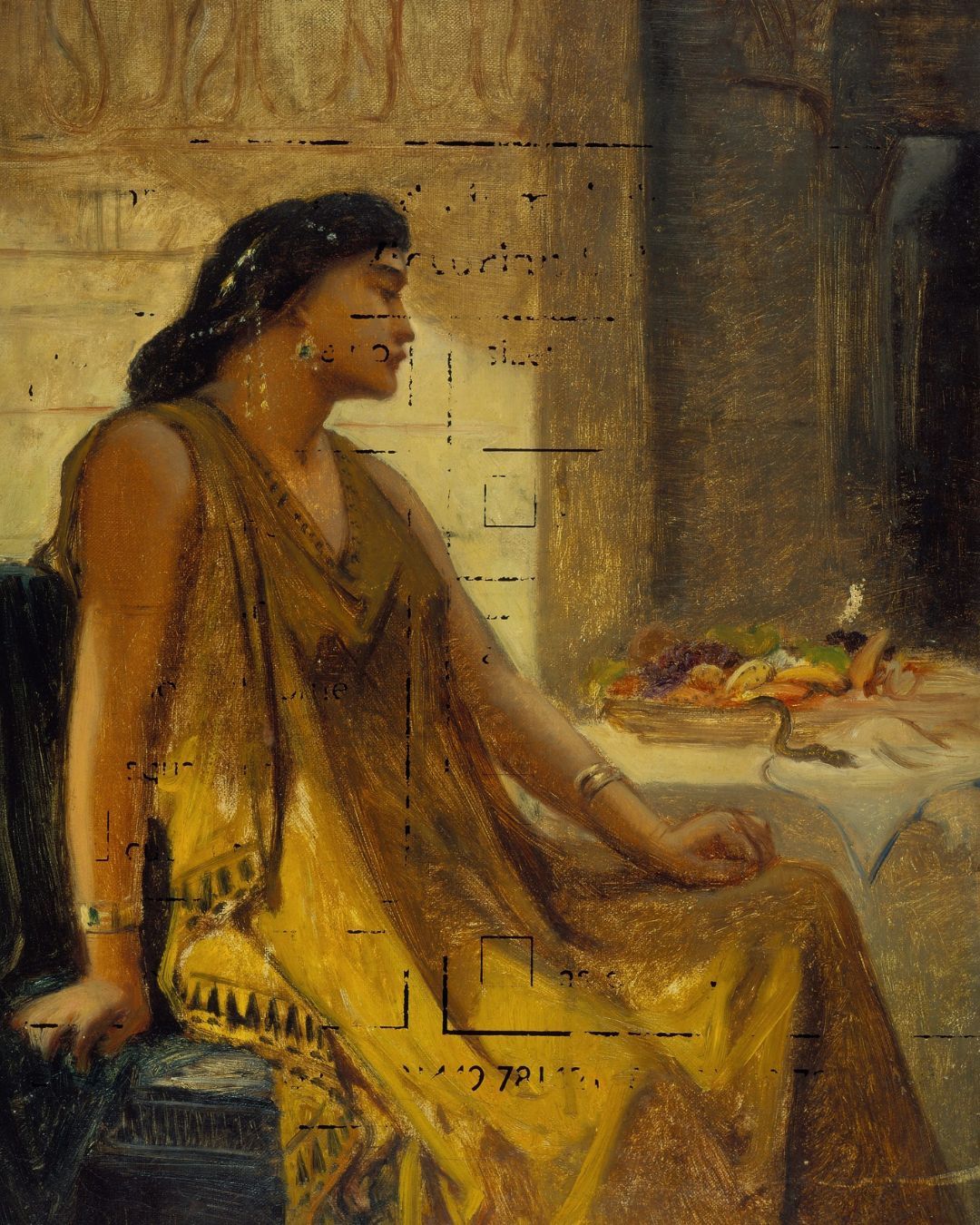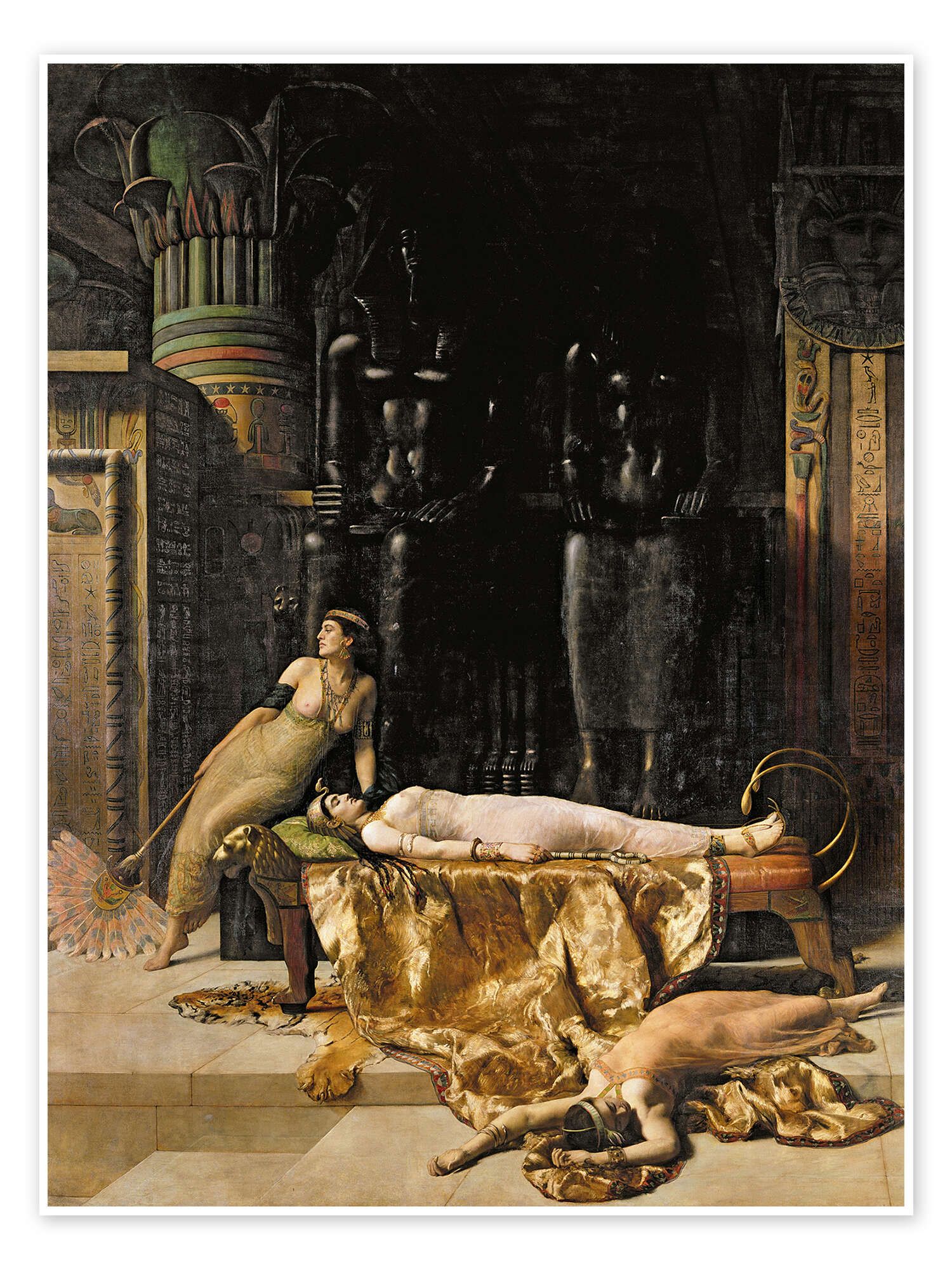Late autumn in Alexandria.
Charmion — Cleopatra’s attendant and confidante — writes to a friend from the garden shadows where queens never walk. The letter, preserved in fragments of imagination rather than record, carries the voice of one who lived in proximity to power yet remained unseen.
She writes of loyalty tested by longing. Cleopatra, magnificent still, moves through marble corridors with divine composure, receiving Roman dispatches as though they were offerings at temple altars. Yet in private, Charmion notes, the queen lingers at west-facing windows, staring toward Rome — the city that holds the man who could make her forget she was goddess: Mark Antony.
Antony is absent again, gone for months. Cleopatra’s children carry his restless energy in their small frames. When they ask after their father, she answers with myths: Dionysus wandering distant lands, gods who love mortals but cannot remain. In the silence between stories, Charmion perceives grief — a yearning raw enough to strip away the queen’s mask of divinity.

The handmaiden observes this dual life with precision. She dresses Cleopatra for senate meetings where Antony’s name threads through treaties. She prepares her for festivals celebrating victories won with other women’s wealth. She scents her queen’s skin with oils for evenings spent among ambassadors, while Antony lies in other beds across the empire.
Charmion captures the paradox with a single metaphor: Cleopatra loves Antony as the drowning love air — desperately, completely. He loves her as storms love coastlines — dramatically, destructively, leaving beauty and wreckage entwined.
Through it all, Charmion remains at her queen’s side. She braids jasmine into Cleopatra’s hair, arranges golden clasps, and prepares her baths. Sometimes, their eyes meet in the mirror. In those moments, Charmion sees not Isis incarnate, not sovereign of Egypt, but a woman who chose to love a man who could never choose her above all else.

This is the intimacy of service — knowing both the goddess and the woman, both the sovereign and the vulnerable. It is loyalty that persists even when survival offers reason to flee.
At 39BC, this spirit is honored in ritual. Fig Milk, part of Vol. I: Alexandria, evokes the quiet intimacy of a handmaiden’s perspective. Green fig, violet leaf, coconut, and cedarwood create a fragrance close to the skin — tender, restrained, and lingering like memory.
Because some loyalties run deeper than survival. Some devotions are more essential than happiness. And some stories endure only in whispers and in scent.
